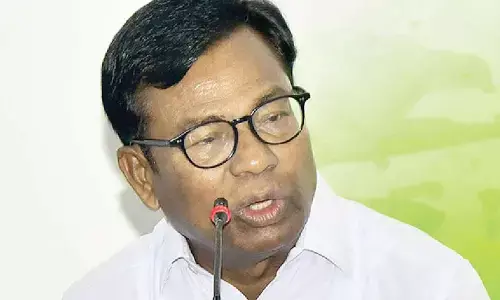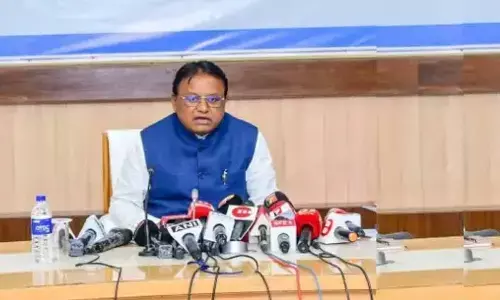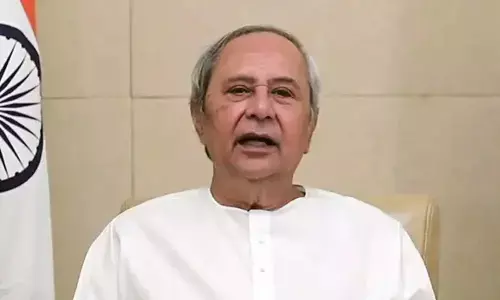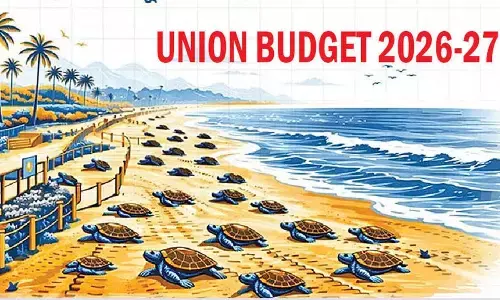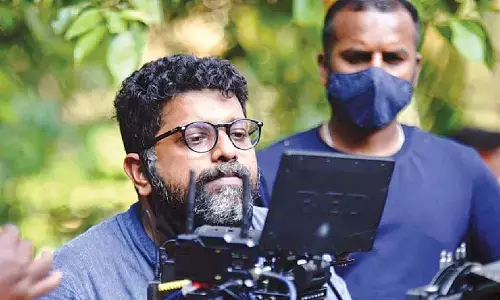How India nixed UN in J&K
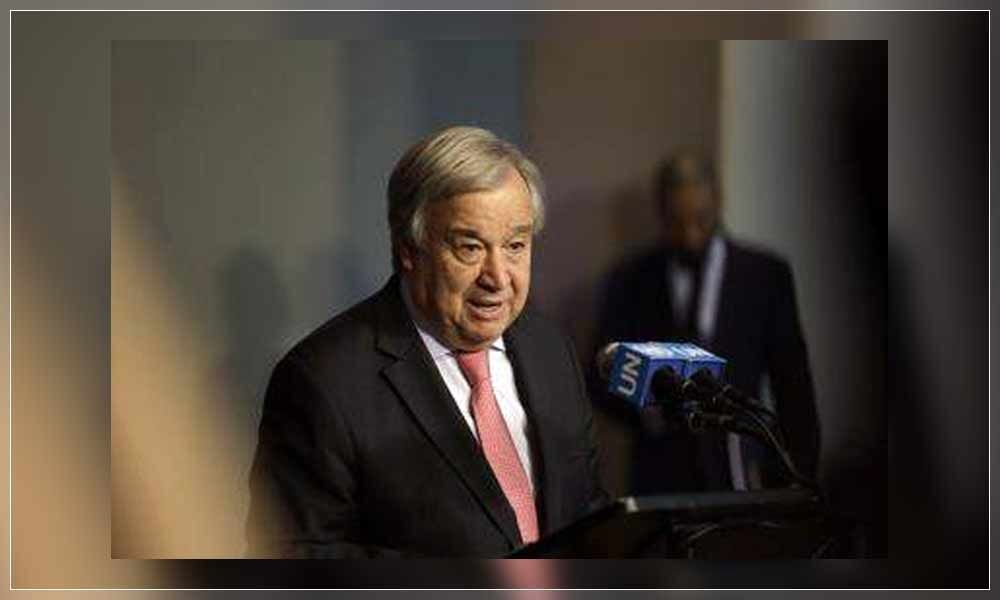
In a throwback to the past, it is important to note that on November 1, 1947, at a meeting of Governors General of India and Pakistan at Lahore, Mountbatten offered to resolve the J&K issue by holding a referendum. Rejecting the Mountbatten formula, Muhammad Ali Jinnah remarked that a plebiscite was "redundant and undesirable."
New Delhi, Aug 9 (IANS) In a throwback to the past, it is important to note that on November 1, 1947, at a meeting of Governors General of India and Pakistan at Lahore, Mountbatten offered to resolve the J&K issue by holding a referendum. Rejecting the Mountbatten formula, Muhammad Ali Jinnah remarked that a plebiscite was "redundant and undesirable."
H.V. Hodson has recorded in his book, The Great Divide, that Jinnah "objected that with Indian troops present and Sheikh Abdullah in power the people would be frightened to vote for Pakistan." Jinnah proposed a simultaneous withdrawal of all forces -- the Indian troops and the invading forces. Here it is interesting to note that when he was asked how anyone could guarantee that the latter would also be withdrawn, Jinnah replied, "If you do this I will call the whole thing off."
In connection with the steps to ascertain the wishes of the people of J&K, Mountbatten was in favour of a plebiscite under the auspices of the United Nations while Jinnah proposed that he and Mountbatten should have plenary power to control and supervise the plebiscite.
Late on Thursday night, UN secretary General Antonio Guterres spokesperson Stephane Dujarric told IANS - The Council's Resolution 47 adopted on April 21, 1948, said Pakistan should withdraw its nationals from Kashmir before a plebiscite can be held. Pakistan, however, continues to occupy a significant part of Kashmir making a plebiscite impossible.
Since then, India has said a plebiscite was moot because of Pakistan's continued occupation and because Kashmiris have had their say in state and national elections.
"The Secretary-General also recalls the 1972 Agreement on bilateral relations between India and Pakistan, also known as the Simla Agreement, which states that the final status of Jammu and Kashmir is to be settled by peaceful means, in accordance with the Charter of the United Nations" Dujarric said.
While calling for maximum restraint, "the Secretary-General is also concerned over reports of restrictions on the Indian-side of Kashmir, which could exacerbate the human rights situation in the region, he said.
The Charter provisions directly applicable to the India-Pakistan situation require members to settle their disputes by peaceful means and to refrain from the threat or use of force against the territorial integrity of any nation.
The Charter also says that UN cannot "intervene in matters which are essentially within the domestic jurisdiction of any state. This is a slam dunk against a prospective Pakistani expedition to fish in troubled waters and a win for Indian diplomacy.
As far as UN resolutions go, there are many on Kashmir, including the appointment of a Mediator in Sir Owen Dixon. But east was east and west was west and never the twain shall meet and Kashmir fell between two stools. Pakistan has to realise that the ship has sailed for UN intervention in Kashmir. The UN Commission for India and Pakistan (UNCIP) failed to make any headway. It had even named Fleet Admiral Chester Nimitz as the Arbitrator. The pressure at that point in time for arbitration was intense with a catalogue of correspondence flying around.
On August 31, 1949, US President Harry Truman sent a message to Pandit Nehru through US Ambassador in Delhi Loy Henderson. In what was clearly a calibrated and coordinated move, British PM Clement Atlee dashed off a similar sounding letter to Nehru. Nehru, showing great foresight, negated the manoeuvre by replying to Truman with a feisty letter saying that the Truce Terms were unacceptable. He took a very strong line on Kashmir saying that the Government of India could not accept the proposal for arbitration presented by UNCIP until they were "just and well defined.. and the basis and terms were satisfactorily settled, we consider it premature to discuss with the agency to which the arbitration should be entrusted."
Why did Nehru, always a pacifist, take such a strident line and scupper the plan for arbitration? At the very kernel of the tough line was J&K Government junior minister D. P. Dhar's top secret and personal note dated September 2, 1949 for the PM's eyes only after extensive meetings with UNCIP's Dr. Ing Oldrich Chyle. Chyle felt that once an Arbitrator came into being, he would no longer function under the aegis of the UNCIP, but would lord over it and also over India and Pakistan. Moreover, the position of J&K would be naturally eroded and become one of abject pity. The rationale offered convinced Nehru that it was time to stall for Dhar's arguments were cogent:
"The appointment of an Arbitrator would take away the Kashmir issue from the orbit of the UN Assembly and thereby subject the final decisions on it to the vagaries and whims of one individual. In the present set up, however, any award that the Arbitrator may give will not be so much in relation to the realities of the situation but will only reflect the policy of the Anglo-American Bloc."
"That there are solid blocks of divergent opinion and ideologies in the world today and in the event of matters tending to go against India, the voice of dissent, whatever be its character or nature to the Anglo-American opinion would be advantageous."
"The appointment of an Arbitrator would negate the great advantage that India has secured in the UNCIP's proposals by securing recognition of the J&K Government as the only authority competent to appoint a Plebiscite Administrator. This advantage can be at the proper time utilised to feed an attitude of obstinacy which sometimes becomes necessary in international bargaining. The new proposals, if accepted, would efface the limited recognition granted to the J&K Government as a third party whose importance could be employed at the right time."
"Dr. Chyle believed that there were two methods of resisting the new proposals of the Commission. He was aware of the fact that the Commission's latest proposals could no longer be trusted with the same ease by India or Pakistan because of the appearance of the unexpected support that the governments of Great Britain and America had lent to them. He, however, suggested that for the sake of arguments the consideration of the present proposals should be divorced from the combined enthusiasm expressed by Anglo-America in this connection. In other words, one possible method of resistance would suggest the employment of purely legalistic arguments for this rejection."
The following facts could be quoted to our advantage:
That while making the present proposals, the UNCIP has transgressed the powers which belonged to it under the terms of its appointment.
That the role that was assigned to the UNCIP by the Security Council was one of mediation. The causes that led to the failure of its attempt at mediation should be confided to the public opinion of the world. It will be obvious that the refusal of the Commission to make public the causes which led to the failure of arranging a meeting between India and Pakistan very clearly points that they are not interested in placing the blame for the failure of the joint talks on Pakistan because a body of mediators has the absolute right of choosing a discussion on the subjects on the subjects which they consider to be relevant to the dispute. It is illogical for any party to the dispute to appropriate itself the authority of choosing the subjects on which a discussion should take place.
In other words, the Commission has abandoned its inherent right of making the choice of an agenda for discussion between the two countries in favour of the intransigence of one or the other party.
Even if the Commission is averse to the idea of making public confession of the causes of its failure, they should at least go back to the UN and present a proper report to them so that the next step could be considered on the level of the UNO.
Nehru very clearly did not want to get entangled in any form of bloc politics and as was his wont steered clear of both the fronts in the Cold War, instead opting for non-alignment as a foreign policy credo. For him there was no 'unfinished part of the partition', something that Pakistan has been persisting as an idiom for Kashmir over these last 70 years. D.P. Dhar's note and Nehru's resolve scuttled the Anglo-American design for an Arbitrator who would function as an agent provocateur.
While expostulating on his argument, Dhar referred to a recent article in the London Times in which suggestion of a similar nature had been offered:
"The solution of the problem is not the appointment of an Arbitrator but reinforcement of the powers at present exercised by the UNCIP. In such an event, the size of the Commission would probably be shorter than it is at the present moment.
"If such a course is to be adopted, the possibility of proving India as the intransigent party to the dispute would be eliminated.
"The other method of resistance would be to reject outright the very idea of arbitration. Such a straight rejection without taking advantage to the legalistic arguments in favour of India would not appear palatable."
One needs to add that the Czechoslovak representative of the UNCIP, Dr. Oldrich Chyle (Chyle took the post after resignation of Josef Korbel father of Madeline Albright who went on to become US Secretary of State) criticised the UNCIP's work. According to him, the arbitration move was a pre-planned attempt on the part of the USA and UK to intervene in the dispute.
Signing off negatively on the same arbitration proposals was Bakshi Ghulam Mohd., one of Sheikh Abdullah's key lieutenants. Writing to Sheikh on September 5, 1949, Bakshi stated:
"We stand for the total rejection of these proposals and any stand that modifies our views will not be acceptable to us. In no event shall we surrender the destiny of our country to a course of action which is designed to annihilate us."
"We feel very strongly on this question and we beg you to communicate the strength of our feeling to the Government of India."
"I would also like to draw your attention to the recent statements of Admiral Nimitz which have been appearing from time to time in the world press. The examination of the views he has expressed particularly with regard to the feasibility of restricting the franchise in the event of the Plebiscite is a clear indication of the fact that he has even before his appointment prejudged the whole issue. In view of this, it will not be possible for the Government of J&K to consider his formal appointment because his utterances have thrown a great cloud over his impartiality."
This was followed by an even stronger note from the Government of J&K to the Government of India which left no doubt in anyone's mind as to where Sheikh Abdullah and Co stood. It was a matter of life and death.
"An Arbitrator who in fact will be a nominee of the Anglo-Americans cannot but reflect the tendencies of partiality in his judgment. Apart from this, questions which are so vital to our very existence cannot and must not be handed over to the whim of an individual, howsoever highly placed he may be."
"Pakistan being conscious of the basic weakness of its position as an aggressor is interested in hurrying, so that the issues are sufficiently confused. In this way, the keen desire of Pakistan to get the Plebiscite through in a state of bewilderment and confusion has been so faithfully endorsed by the latest proposals of the UNCIP."
"...it was Pakistan who always exhibited the tactics of an intransigent bully and every time the Commission bowed to her intransigence. It always called on us to give and acquiesce every time in favour of desire to grab. An agreement on the ceasefire lines was possible only because India conceded generously to the demands of Pakistan."








